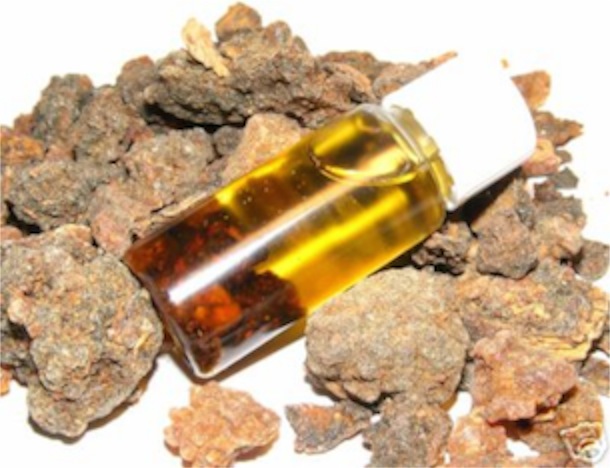Myrrh
06/01/13 05:02

Epiphany always brings to mind what seems to me to be the most common hymn about the three kings:
We three kings of orient are
Bearing gifts we traverse afar.
Field and fountain, moor and mountain,
Following yonder star.
O star of wonder, star of night,
Star with royal beauty bright,
Westward leading, still proceeding,
Guide us to thy perfect light.
It is one of the hymns of which I have memorized the words to all of the verses. We sang it at Christmas every year. Many years there were three boys, each singing solos for verses two, three and four – the verses of the individual kings’ gifts: gold, frankincense, and myrrh.
The “gold” is easy:
Born a king on Bethlehem’s plain,
Gold I bring to crown Him again,
King forever, ceasing never
Over us all to reign.
And “frankincense” is pretty easy, too:
Frankincense to offer have I.
Incense owns a Deity nigh.
Prayer and praising all men raising,
Worship Him, God on high.
But the “myrrh” verse is relatively hard to memorize:
Myrrh is mine: it’s bitter perfume
Breathes a life of gathering gloom.
Sorrowing, sighing, bleeding, dying,
Sealed in a stone-cold tomb.
So what is it with the gifts, anyway?
The gold makes sense. The parents were impoverished. A bit of cash can always help with the expenses of a new baby. There are all sorts of unforeseen expenses associated with a new child. On suspects, from reading the whole story, that it wasn’t enough gold to make anybody rich – maybe it was enough to help with the expenses of a flight to Egypt to save the life of the child. These days when a family has to make a big trip to save their child’s life, the resources of the wider community come into play. We raise money to support refugee camps and to help with those who have to travel long distances seeking medical care. The gold was a practical gift.
Frankincense is a symbolic gift – one that sort of makes sense if you think about it. The incense had uses in the practices of the temple. It was, in a sense, a gift suitable for a priest or religious leader. Jesus, it turned out, didn’t become a temple official. He was a new kind of religious leader, but as a baby, people couldn’t have known his future. The gift of frankincense was an acknowledgement that this baby had special religious significance. Why, out of all of the accouterments of the temple frankincense was chosen, is a bit of a mystery. The temple in those days was a place of animal sacrifice, with all of the smells associated with such activities. The incense was one way to combat some of the negative odors associated with the practices. They burned a lot of incense to cover up some rather strong odors.
Babies can get stinky, too, though incense usually isn’t the best way to deal with the odors. A good diaper pail might have been a more practical gift.
The mystery gift, however, is the myrrh. One normally does not bring embalming fluid to a birthday party. OK, myrrh isn’t exactly embalming fluid. It is, however a resin that was valued because of its odor and its ability to mask other odors. It was commonly used in the preparation of bodies for burial. In the warm temperatures of the Middle East in the days before embalming, a body began the natural process of decaying. Burial was usually completed quickly. The practice of using caves as tombs was a way to get the body into the ground quickly without the chord of digging in dry ground on a very hot day. The odor was strong enough that it is mentioned in the Biblical story of Lazarus. Martha warns Jesus of the odor when he asks them to take the stone away from Lazarus’ tomb. (John 11:39)
So they used myrrh to help control the odors when someone died.
But it is a really strange baby gift.
The gift, however, goes beyond some sort of morbid foretelling of Jesus death. We will get to the stories of his death quickly enough. Christians don’t avoid the tales of that time, but the story of the visit of the Magi in Matthew’s Gospel is a story of escaping the infanticide ordered by Herod. Jesus escapes death in that particular story.
The gift of myrrh is an acknowledgment that sorrow and grief are a part of every human life. Jesus would grow into a man who witnessed too much death, who saw too much sorrow, who experienced too many tears. In the story of Lazarus’s death we find the words of what we believed to be the shortest memory verse in the Bible when we were children: John 11:35: “Jesus wept.” Jesus himself knew grief.
But we rarely understand that our grief is a gift of God. We aren’t quick to recognize grieving as a gift. It is painful to grieve. It doesn’t feel good or normal or ordinary. Sometimes, in the midst of grief, we feel as if we are losing our minds. We don’t like the sensation at all.
Grief, however, is a sign of how much we care. Grief is a reminder of the love we have shared. Grief is part of life in community. Love and care and community are gifts of God. As I work with people, I have discovered that grief is in fact a good process. Loss is inevitable. How we respond to loss is what makes the difference. Allowing ourselves to grieve is a way of responding to the loss that keeps us close to the core values of love and care and community.

Still, it is easy to imagine Joseph turning to Mary as the magi departed and saying, “The gold is nice and I suppose we’ll find some use for the frankincense, but what are we going to do with the myrrh?”